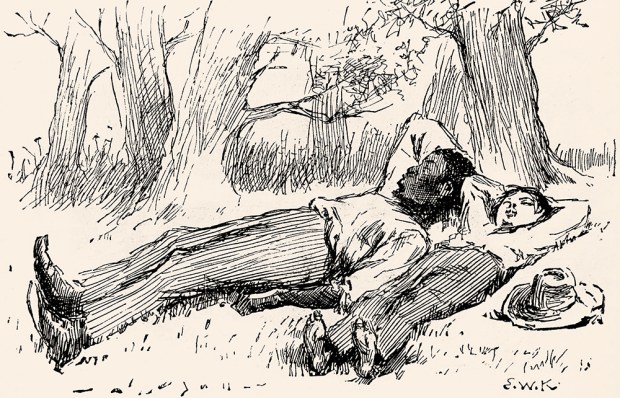Wyl Menmuir’s first novel, The Many, was a surprise inclusion on the 2016 Booker Prize longlist. It drew praise for its discomfiting prose, but the fact that it had been written in a VW camper van on the north Cornish coast — where it was set — also drew attention.
The village in The Many appeared to be forgotten by the outside world, and the setting for Fox Fires is similarly isolated. Nineteen-year-old Wren Lithgow arrives in a mysterious European city state called O with her concert pianist mother. The peril they are in isn’t laboured, but the reader realises it by degrees — as Wren does. She was conceived in O, and on this return visit she resolves to track down her father, although she is not even sure of his name and cannot speak the local language, O’chian. The only clues she has to his identity are a single photo of her parents and a broken wind-up doll he gave her mother, which she has named Ariadne,
The claustrophobia of Wren’s relationship with her mother (at one point she keeps her hands in her pockets to stop herself from slapping her) is intensified by the secrecy and restrictions in O. There is a nightly curfew which they are entreated to observe, and they comply without ever asking why.
This seems to be an era without internet or mobile phones, in which maps are forbidden, even hand-drawn ones, so Wren must memorise routes around the city. Since she and her mother have been constantly on the move, that’s not easy — ‘at times the cities threaten to merge into a single, nameless metropolis’. In O in particular, ‘rivers course through it like eels, which remake the city daily’.
Wren’s behaviour is sure-footed, but it makes the danger she is in seem all the more frightening — as though she is at risk of being complacent. Menmuir evokes well an atmosphere of Stasi-like surveillance and paranoia. Although the novel is written in the third person, the pronoun ‘I’ suddenly appears, alarmingly, over halfway through, and we realise that Wren is being watched by a new narrator. The novel makes important points about identity and state bureaucracy — but how beguiling to do so through a haunting fairytale.
Got something to add? Join the discussion and comment below.
Get 10 issues for just $10
Subscribe to The Spectator Australia today for the next 10 magazine issues, plus full online access, for just $10.
You might disagree with half of it, but you’ll enjoy reading all of it. Try your first month for free, then just $2 a week for the remainder of your first year.














Comments
Don't miss out
Join the conversation with other Spectator Australia readers. Subscribe to leave a comment.
SUBSCRIBEAlready a subscriber? Log in